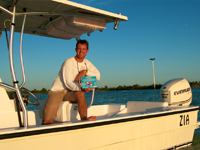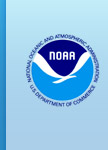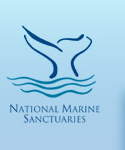Florida Keys National Marine Sanctuary welcomes
13th operator into coral conservation and education program
September 13, 2012
NOAA’s Florida Keys National Marine Sanctuary welcomes Zia Charters of Key West, Fla. as the newest participant in the sanctuary’s Blue Star education and conservation program. Zia Charters is the 13th operator in the Florida Keys to earn this recognition.
Launched in 2009, Blue Star salutes charter companies that help protect the Florida Keys coral reef ecosystem by promoting responsible diving and snorkeling practices, and educating their patrons on the role humans play in reef health. Unlike some of the more global causes of reef decline — such as climate change — damage to reefs from diving and snorkeling is considered easily preventable through education and experience.

Zia Charters of Key West is the 13th operator to earn Blue Star recognition.
“We are pleased to welcome Zia Charter into the Blue Star program and to increase the number of lower Keys program participants,” said Sean Morton, sanctuary superintendent. “Blue Star operators have the unique opportunity to be front-line educators, inspiring conservation and stewardship among the more than 700,000 divers and snorkelers who visit our reefs annually.”
Home to the third-largest living barrier coral reef in the world, the sanctuary’s protected waters contribute an estimated $2 billion in annual tourist revenue. The reef's close proximity to land and an abundance of boat operators in the Keys make it easily accessible to both novice snorkelers and seasoned divers.
Blue Star operators are required to attend training annually on issues affecting coral reefs, sanctuary regulations and coral reef etiquette. In turn, Blue Star operators educate their customers by incorporating the information into certification classes and dive briefings. They also must offer conservation-related dive courses and participate in activities such as fish counts and reef clean-ups. Operators are re-evaluated every year.
Blue Star is funded in part by a grant from Mote Marine Laboratory's “Protect Our Reef” Grants Program. Visit www.sanctuarybluestar.org for more information on the program and a list of recognized operators.
Florida Keys National Marine Sanctuary protects 2,900 square nautical miles of critical marine habitat, including coral reef, hard bottom, sea grass meadows, mangrove communities and sand flats. NOAA and the state of Florida manage the sanctuary. Visit us online at floridakeys.noaa.gov or on Facebook at www.facebook.com/floridakeysnoaagov.
NOAA’s mission is to understand and predict changes in the Earth's environment, from the depths of the ocean to the surface of the sun, and to conserve and manage our coastal and marine resources. Join NOAA on Facebook, Twitter and our other social media channels.


